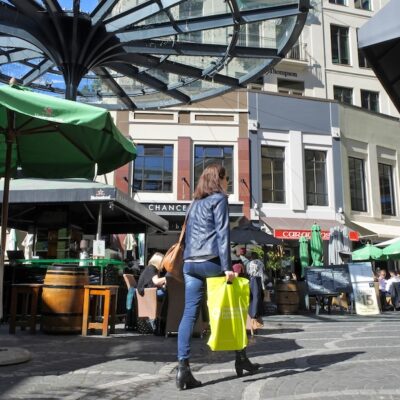NZ economy in for a bumpy ride following Brexit
The Brexit decision is a body-blow to the global outlook and New Zealand is decidedly vulnerable to the ensuing global turmoil, a leading Kiwi economist says. In BERL’s just released […]
The Brexit decision is a body-blow to the global outlook and New Zealand is decidedly vulnerable to the ensuing global turmoil, a leading Kiwi economist says.
In BERL’s just released updated forecast, chief economist Dr Ganesh Nana says the stubborn economic fog has thickened considerably as a result of the British referendum outcome to leave the European Union. Despite six years of New Zealand economic growth – as measured by GDP – broader and arguably more informative measures of economic health suggests New Zealand’s economy is not well prepared for global turmoil.
“So buckle in for the coming months, they will be neither smooth, nor enjoyable. We’re in for a rough period. Heading into the Brexit vote were underlying weakness in Europe alongside geo-political upheaval and a peculiarly potentially disruptive US presidential election campaign. Meanwhile, prospects for the Chinese economy remain the elephant in the room (the response of international financial flows to the prospect of sub seven percent annual growth in China remains a worrisome unknown).
“With such uncertainty, vulnerability and fragility, the potential impact of an upheaval such as the United Kingdom leaving the EU cannot be understated. The short-term disruption to the global financial mechanism at a time when monetary authorities were pretty much out of ammunition is set to be hair-raising. And the potential for haircuts down the road should also not be understated.
“There is no way New Zealand will escape the short and longer term fallout from such global disruption. In the run-up to the Brexit vote the New Zealand dollar rose to close to or above 12 month highs against the US dollar at about 71 US cents, the Australian dollar at 95 Aussie cents, the UK pound at 49 UK pence, and the Euro at €0.63. The immediate response to the Brexit decision saw a reversal of some of these gains, as funds fled to the conventional safe havens of gold and the greenback.
“But the vote also sees the fog thicken over the future of the EU not to mention the leadership of the governing Conservative Party in the UK. With such a climate, reinforced by recent OECD and IMF downwards revisions to global growth forecasts and relatively attractive New Zealand interest rates, the attractiveness of the NZ dollar could well return after the immediate response. That could further restrain external sector income and, so, investment in that sector.
“The run-up to the vote, however, also saw the New Zealand mood to be remarkably sanguine. Yes, the recovery from the 2010 recession has been impressive. Yes, six years of almost uninterrupted expansion, averaging an annual 2.5 percent, is not to be sneezed at. “Growth driven by specific construction elements (Christchurch, Auckland housing, and regional roading) that are more catch-up maintenance than productivity-enhancing capacity expansion leaves one asking whether the gains are indeed material. Further, growth associated with strong population expansion brings queries about sustainability of the expansion. Annual economic growth of 2.5 percent in the context of population growth well over 2 percent leaves one rightly asking about the nature of the gains.
“And we have to consider house prices in Auckland and beyond. The imbalances between asset price inflation and economic activity has been a feature of the post global financial crisis world. Global consumer price deflation reflecting sluggish global demand contrasts starkly with asset price inflation as quantitative easing has flown directly through to bloated balance sheets rather than to economic activity.
“And the surfeit of funds globally looking for a home has amplified the bubble present in Auckland house prices. As for all bubbles, there is a risk that they burst. And the larger the bubble, the greater the risk. In the absence of any genuine government appetite to rectify the asset price imbalance, the ongoing attractiveness of NZ as a home for such funds will see this risk as an ongoing feature of the New Zealand economic climate. Within this context, NZ’s short-term economic prospects become more delicate,” Dr Nana says.






